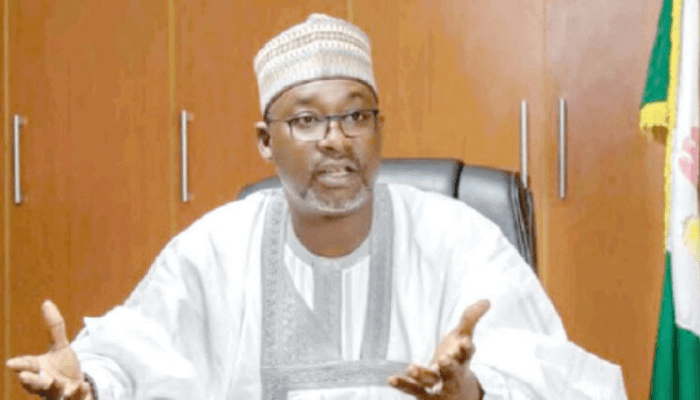National
Cameroon’s Lagbo Dam not responsible for floods in Nigeria– FG
Minister of Water Resources, Suleiman Adamu on Wednesday disagreed with the Senate that water released from the Lagbo Dam in Cameroon was responsible for the devastating floods in many parts of Nigeria.
Rather, the minister said the cause of the flood was due to water flowing from tributaries of River Katsina Ala and others into River Benue due to heavy down pour.
A former Kebbi State governor, Senator Adamu Aliero raised the issue of floods in the country during budget defence of the Ministry of Water Resources and what efforts the ministry was doing about it set the stage for the disagreement.
Speaking on Lagbo Dam, the minister said “there has been insinuations that every year the Cameroonians inform us when they are releasing the water, that is not true.
“It took a lot of efforts from us to get a Memoranda of Understanding, MoU for them to be informing Nigeria about releases. That was done when President Paul Biya came here on state visit in 2016. They have been attempting since 2012, but it wasn’t done,” Adamu said.
However, the minister said despite the MoU, it was the Nigerian hydrological services that would call Cameroon whenever flood time came.
He said: “Even this one, they are the ones who should keep us informed about the level of the water, but they didn’t. They informed us 24 hours after.”
The Senate Committee also wanted to know what happened to Dasin Hausa Dam in Adamawa State, which was meant to mitigate the effects of water released from Lagbo Dam in Cameroon
which has been in the drawing board since early 90s.
The minister said it was still on the drawing board, but added that even if the dam is built, it will not help much since, according to him, the water released from Lagbo Dam contributes only about one percent to the floods in Nigeria.
“You cannot stop flooding, it’s a natural phenomenon; just like you cannot stop earthquake.
“You know every year I come out to do my annual flood outlook. We have been doing it annually and we tell Nigerians down to the local government where we feel flood will happen. We tell them what measures to take. States and local authorities should stop giving people permit to build on water courses.
“People should not be building illegally on water courses. If you have a water course, if you think that you will see it dry for 10 or 20 years, it doesn’t mean in the 100 years water will not come.
“Once that place has been a water course may be in another 10 years, 20 years, water will still come back to flow into that place. Town planning authorities in the states and local authorities should ensure that they plan their towns and cities properly, we will also make sure we provide adequate drains where before the next raining season, they are all clogged with sand and garbage. They should be cleaned up. That is the way to go.
“We have for 100 of years been deforesting our land, we have degraded the land. So when rain comes, they wash sand into the river and the rivers are silted up. When the runoffs come, it is more than the capacity of the river bed, it will spill into the banks and flood the areas.
“We need to do water shed management. And this is not a federal matter, we provide the guidelines but individuals in communities need to be doing this themselves. All these things need you to go down to the community level, you cannot expect everything will come from Abuja. That is not how to run things. Every citizen has a responsibility,” the minister stressed.
Contact: info@royalnews.com.ng


